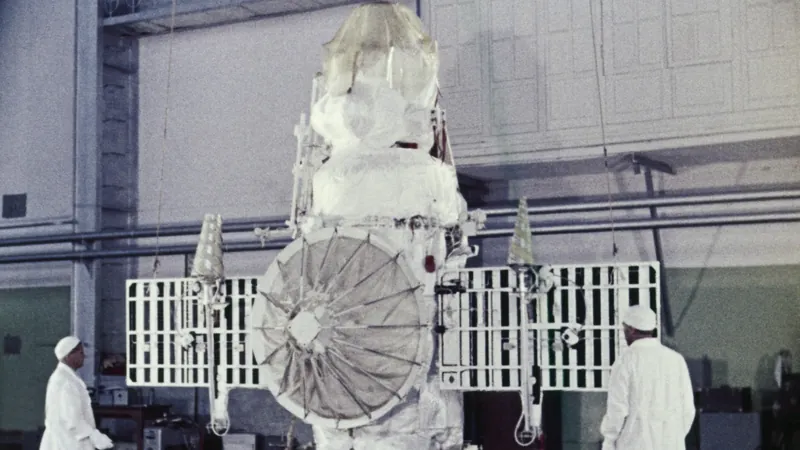
After 53 Years in Limbo, a Stranded Soviet Venus Lander Is About to Make Its Dramatic Return to Earth
2025-04-28
Author: Amelia
A Blast from the Past: The Return of Cosmos 482
In March 1972, the Soviet Union launched a bold mission to Venus with the Cosmos 482 probe. Unfortunately, the rocket's upper stage malfunctioned during its ascent, leaving the probe stranded in Earth’s orbit. Now, after over 53 years of floating aimlessly in space, this relic of the space race is set for an extraordinary reentry.
Mark Your Calendars: What to Expect
Set your sights on the sky around May 9-10, as satellite observer Marco Langbroek from the Netherlands predicts an unusual, uncontrolled reentry of the Cosmos 482 landing module. This descent craft, originally engineered to brave the searing atmosphere of Venus, is about to test its mettle against our planet’s conditions.
A Tale of Two Probes: The Fate of Cosmos 482
Cosmos 482 was intended to be part of a duo, alongside Venera 8, which successfully landed on Venus and transmitted valuable data for over 50 minutes before succumbing to the planet’s harsh environment. While Venera 8 thrived for a brief moment on Venus, Cosmos 482 is now the forgotten sibling, drifting in orbit.
Could It Survive? The Science Behind the Reentry
Engineered to withstand the intense heat of Venus’s atmosphere, the question now is whether this 1,091-pound (495 kg) spacecraft can endure its return to Earth. With its heat shields designed for Venus, the landing module faces an entirely different challenge during reentry through Earth’s atmosphere.
The Uncertainty of Impact
While Langbroek has modeled the reentry trajectory and predicts a landing speed of around 145 miles per hour (65-70 meters/second), the precise location of its descent remains a mystery. Depending on its orbital path, it could come crashing back anywhere from 52 degrees north to 52 degrees south.
The Risks Involved: Not All Hope Is Lost
Despite the uncertainties, Langbroek assures that the risks of debris on impact are low, yet not zero. With its significant mass and size, the fallen module could resemble a meteorite strike in impact intensity.
Stay Tuned for History in the Making!
As we await Cosmos 482’s dramatic reentry, one can only wonder—will this ancient piece of engineering triumph against Earth’s atmosphere? Keep your eyes peeled, because this is one cosmic comeback you won't want to miss!









 Brasil (PT)
Brasil (PT)
 Canada (EN)
Canada (EN)
 Chile (ES)
Chile (ES)
 Česko (CS)
Česko (CS)
 대한민국 (KO)
대한민국 (KO)
 España (ES)
España (ES)
 France (FR)
France (FR)
 Hong Kong (EN)
Hong Kong (EN)
 Italia (IT)
Italia (IT)
 日本 (JA)
日本 (JA)
 Magyarország (HU)
Magyarország (HU)
 Norge (NO)
Norge (NO)
 Polska (PL)
Polska (PL)
 Schweiz (DE)
Schweiz (DE)
 Singapore (EN)
Singapore (EN)
 Sverige (SV)
Sverige (SV)
 Suomi (FI)
Suomi (FI)
 Türkiye (TR)
Türkiye (TR)
 الإمارات العربية المتحدة (AR)
الإمارات العربية المتحدة (AR)